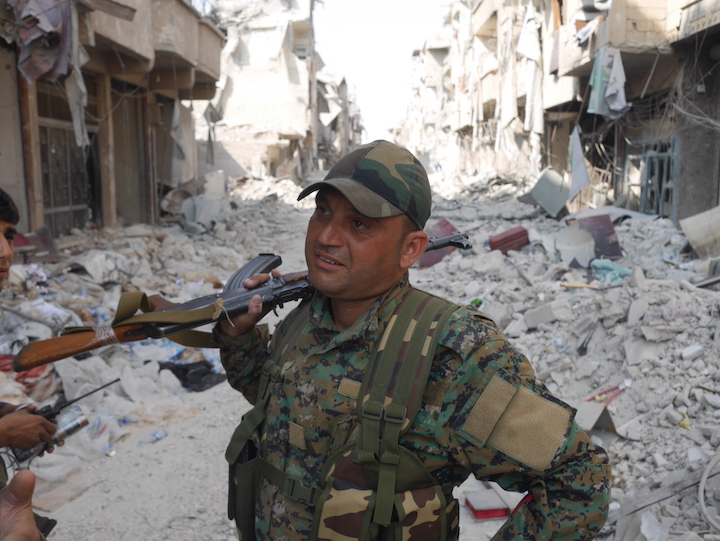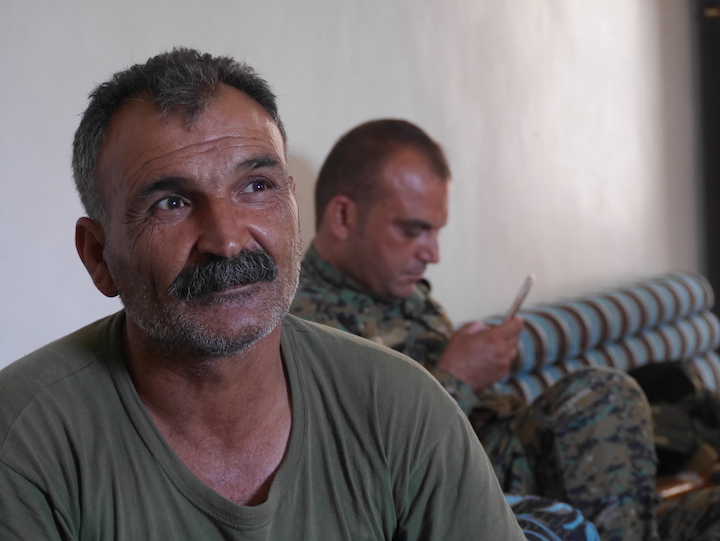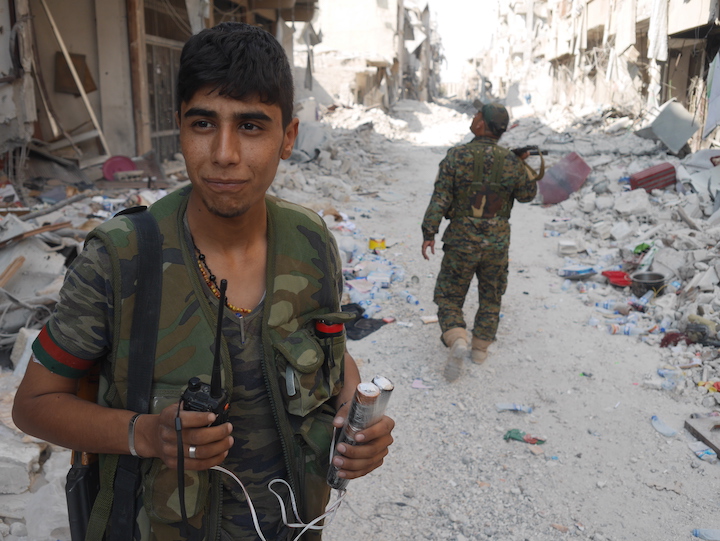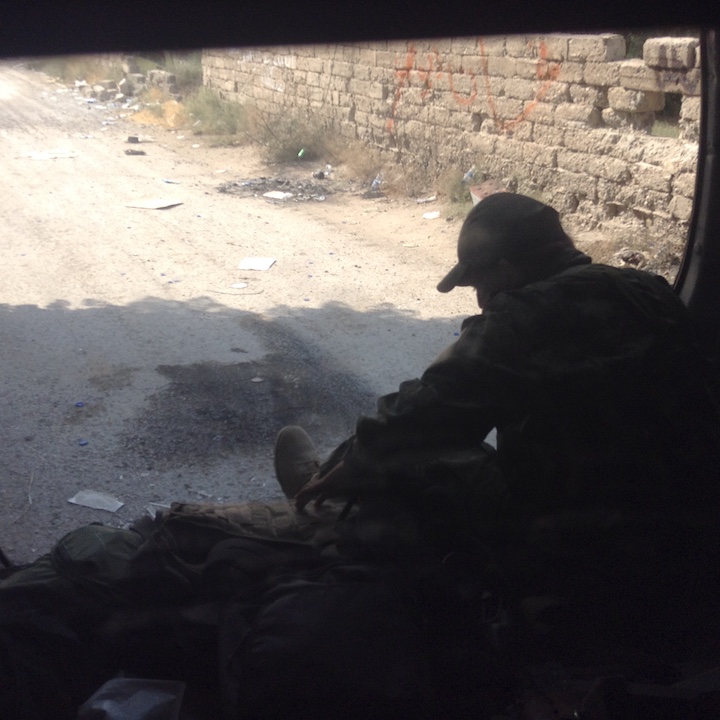
Pai- Recently, I discovered via Twitter that a man I briefly knew in Syria some two years ago was killed, and killed quite some time ago. I was doing frontline analysis for Jane’s Intelligence Review that resulted in my piece entitled CBC reporter Adrienne Arsenault did a story about Ismail’s death in August 2018-though he was killed by an IED in January but perhaps the dots weren’t connected until much later. For some algorithmic reason I only saw this Twitter thread earlier in 2019. Indicative, I suppose, of the nature of social media and how our world works today.
His name was Ismail Khalil, a Raqqawi who had joined the SDF and desperately wanted IS pushed out of his city. According to my friend Mahmoud, he was the victim of a booby trap left behind by IS as they rigged the city with explosives knowing their state-building effort was doomed. Ismail was assigned to me by Mustafa Bali, the SDF spokesman who you may have read quoted on a daily basis during the recent Baghouz operation that ended in March with a decisive SDF victory.
After sleeping at what was then sort of the media base in Ayn Issa and waking up a dawn at the very end of a hot, violent Levantine summer, Bali explained that an SDF fighter who knew the streets of Raqqa intimately had to ride along in my dusty Korean-built van as my driver and fixer were Kurds from Amuda along the Turkish border not terribly familiar with central Syria. The day was hot and hellish as you might imagine.
To produce stories such as these, I take enormous risks from time to time in places experience spectacular violence. But the people who help me along the way take far greater risks because they cannot or do not simply cross an international border to safety once a narrow goal has been accomplished. They are living in wartime. Inhabiting a geography of terror. The work I do isn’t created in a vacuum. It is the product of a thousand human interactions. Discerning linguistic nuance, observing local cultural norms, tight focus on survival.

I often think about fixers, drivers, or friendly guys with guns who’ve helped me in wars past. Wars where Twitter wasn’t a thing or at least I hadn’t joined the online echo chamber yet. I think about Sadeq in Karbala, Kamal in South Governorate, Faisal in Benghazi. All I have is an old photo, a faded business card, a number that no longer works. Are they still alive? When conflicts reignite in certain places, I sometimes contemplate the fate of these guys. Today with the interconnectedness of our rapidly decentralising world, we have the ability to find out things we may wish to have never been updated on. I would much prefer to still wonder if Ismail was rebuilding his business in Raqqa rather than know with certainty he only lived for a few more months after the city’s liberation from IS.

In the case of this man, the story has a horrific ending. The kind of closure your imagination never desires when mulling over the past.
